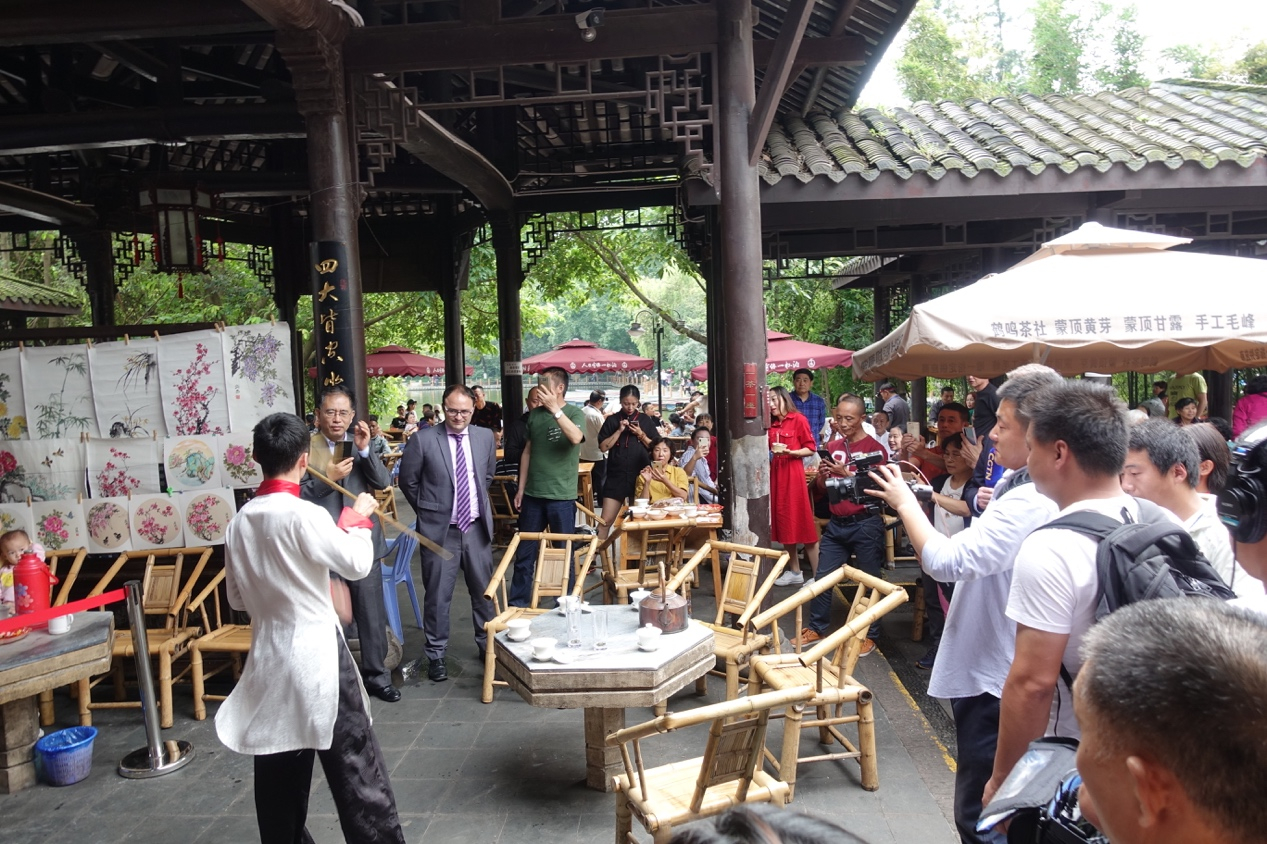It was great feeling having the CGTN New China express pull into the city of Chengdu.
In part, because I have eagerly awaited the visit of the provincial capital in Sichuan Province, and in part because we would get to spend two consecutive nights in a same hotel and that will mean a chance to finally do laundry!
But, to be honest, stockpiling a wealth of dirty clothes is a small price to pay for the pleasure of making this trip through the emerging southwestern region of China.
Chengdu is absolutely one of the economic engines that drives this part of the PRC.
It is a city of 16 million or so people, but unlike many of the big cities that dot the landscape, Chengdu prides itself on its laid-back environment, where people put a premium on the quality of life.
In fact, it was recently named the "happiest" city in China.
What you won't find: motorbikes racing down the sidewalks, traffic snarled, and people honking their horns, or agitated people willing to walk right over to reach their destination.
What you will find: teahouses filled with people of all ages slowly eating hot pot, playing mahjong, and spontaneous performances in one of the many parks.

Tea performance in Heming Teahouse, Chengdu. /CGTN Photo
Tea performance in Heming Teahouse, Chengdu. /CGTN Photo
Chengdu has also become a tourist mecca.
There is a saying, that once you come to Chengdu you won't want to leave.
We met one such young man.
Jonathan Kott, from Seattle, Washington, in the United States.
Kott first came to Sichuan Province 21 years ago as an exchange student during college.
He was hooked.
Now he has not only adopted the city but also a new name. He goes by the name Jiang Nan and is much more comfortable speaking Sichuan dialect than dipping back into his native English language.
Jiang Nan says it is all the things that Chengdu is known for him that led him to stay in southwest China.
He says you cannot put a price on the quality of life.
After a long day of doing live reports for CGTN, and its extensive platforms, we all decided this would be the night for an extended family dinner, if you will, at one of the hot pot stops.
Cold drinks, spicy food, and learning a few more words in Mandarin characterized the night.
We were back on the road bright and early the next day, and I felt a little more rested knowing my suitcase was full of clean shirts and pants.
Hours later we hit the outskirts of Chongqing.
The city is historic, massive and home to one of the most iconic rivers in the world, the Yangtze.
For years, the city of 33 million has boasted economic growth that was white hot.
Recently it slowed down to a level most any nation or region would gladly embrace, its economy dragged down by a car industry that is suffering globally and, of course, the punishing trade war with the United States.
We did our evening broadcast on a riverboat tour, joined by British Consul-General Ash Green.
Green's diplomatic territory just happens to follow our exact route through the southwest.
He says part of his job is to lure Chinese businesses to the UK, and part is to try to get British companies to look at southwest China as opposed to Shenzhen, Shanghai or Beijing.
Of course, it is a challenge, but what isn't in China.
Green said he liked the idea of holding his next meeting on a riverboat, only halfway joking that the benefit is literally having a captive audience.
It's been a great couple of days. It's the kind of trip none of us on this New China adventure would normally have a chance of experiencing.
As our riverboat pulled into the dock, the late summer rain once again caught up with us.
It's been our on again, off again companion since we turned the cameras on in Zunyi on the first day of the trip.
Now, we're back on the bus for a few more hours and day 10!
(Cover: CGTN New China Special lights up the WFC building in Chongqing. /CGTN Photo)